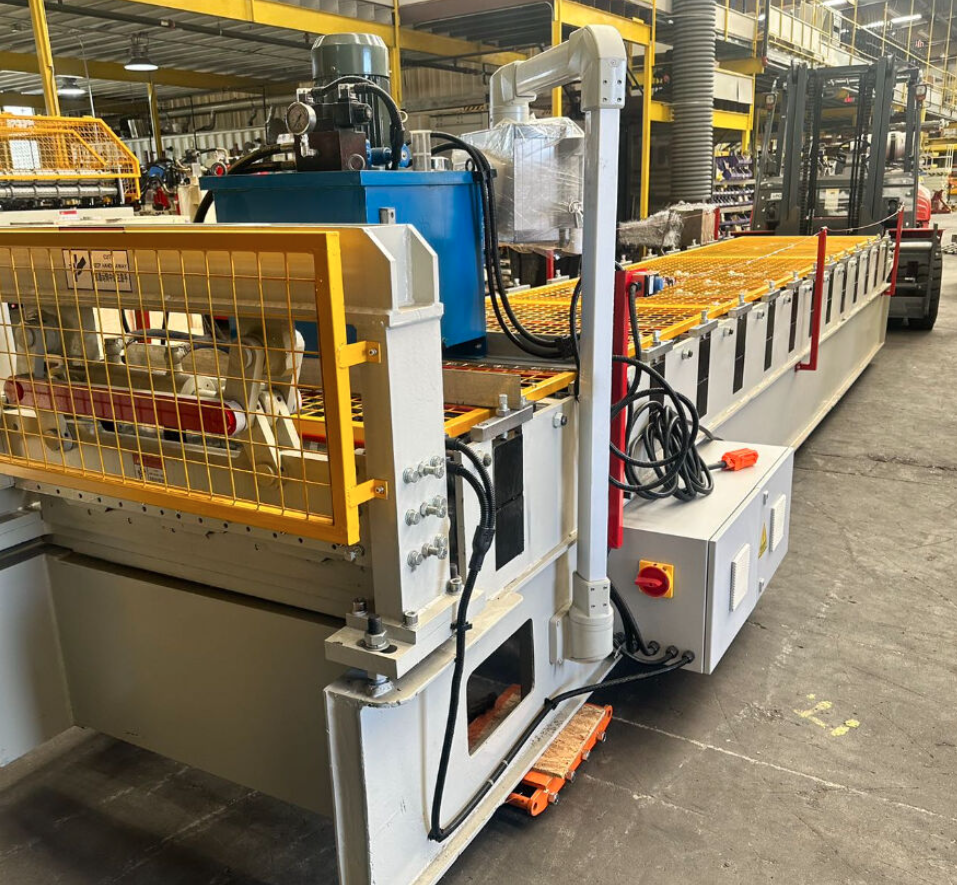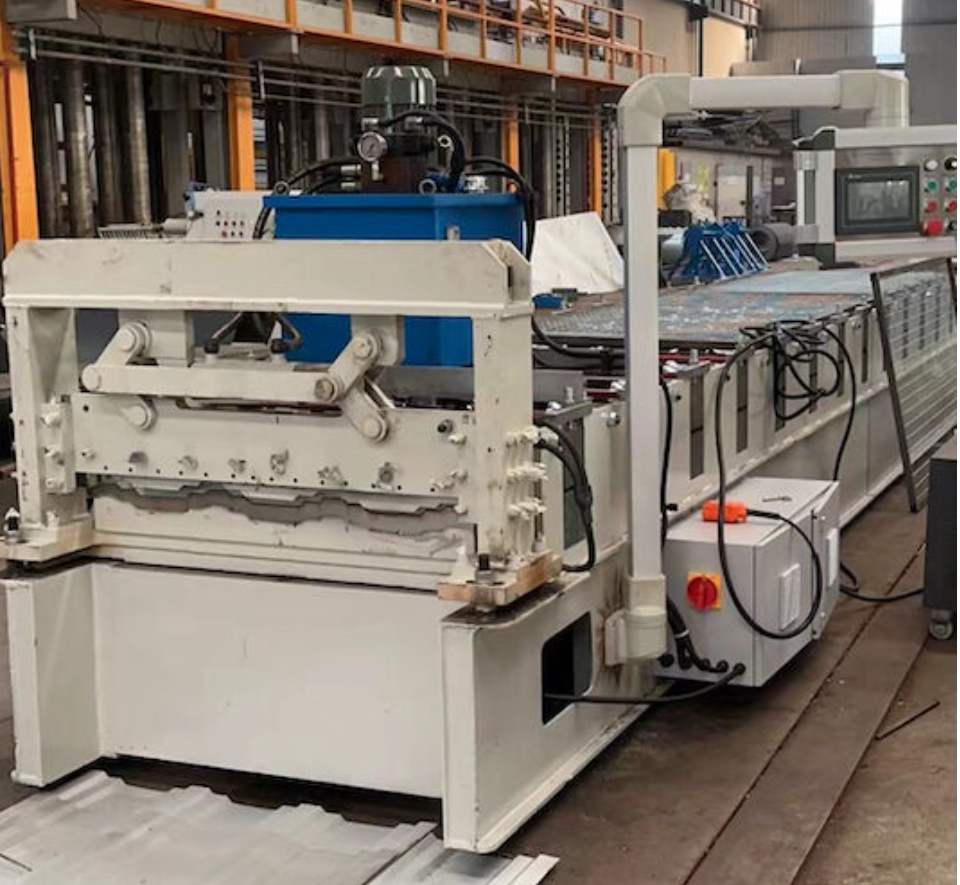To express an interest in this machine please submit the form below.

Not Sure What Machine You Need?
Select Your Profile, We'll Match It
Choose your desired profile drawing, and let Machine Matcher connect you with the best roll forming machine tailored to your needs.
Browse Profiles


The roof panel roll forming machine is a versatile, high-performance solution for producing various types of roof panels, commonly used in commercial, residential, and industrial roofing. Designed to meet the needs of the Texas construction industry, this machine provides precision and efficiency, allowing manufacturers to produce panels that meet stringent quality standards. The machine supports multiple roof panel profiles, including ribbed, corrugated, and standing seam designs, and can handle a range of material gauges suitable for diverse climates and structural requirements in Texas.
The machine’s automated process reduces manual intervention, enhancing production speed while maintaining accuracy. Its modular build allows customization to include various options like punching, notching, and cutting for producing complex panel shapes. With Texas’s variable weather, from hot summers to occasional storms, these roof panels are designed for durability and resistance, providing an ideal solution for the roofing industry in the state.
Texas experiences a range of weather conditions, from intense heat to occasional storms and hail. This machine’s capabilities meet the region's demand for high-quality roofing materials that can withstand extreme conditions. Texas builders require roofing panels that are robust, long-lasting, and visually appealing to fit a variety of architectural styles. By targeting this market, the roof panel roll forming machine offers an ideal solution for quick, precise, and adaptable roofing panel production, suited to both large-scale developments and individual projects.
Q1: What types of profiles can this machine produce?
A1: The roof panel roll forming machine can produce multiple profiles, including ribbed, corrugated, and standing seam panels. These profiles can be customized based on specific architectural requirements, allowing flexibility for various roofing designs commonly used in Texas.
Q2: What materials can the machine handle?
A2: The machine is capable of processing galvanized steel, aluminum, and other metals. It supports a range of material thicknesses, typically from 0.3 to 0.8 mm, making it versatile for different roofing requirements and climates, such as those in Texas.
Q3: How fast is the production speed of this machine?
A3: The machine operates at an average speed of 10 to 30 meters per minute, with a maximum speed of up to 40 meters per minute, depending on the material and profile requirements. This speed ensures high-volume production suitable for the high demands of the Texas construction industry.
Q4: Can the machine’s profile be adjusted for different panel widths?
A4: Yes, the machine offers adjustable profile widths to accommodate various panel dimensions, allowing manufacturers to create panels for different roofing specifications.
Q5: What safety features are included?
A5: The machine comes with safety guards, enclosures, and emergency stops to protect operators from potential hazards. Additionally, it has a user-friendly PLC system that minimizes the need for manual adjustments, further enhancing operator safety.
Q6: Is it compatible with a remote PLC monitoring system?
A6: Yes, the machine can be equipped with a remote PLC system, which allows for monitoring and diagnostics from a distance. This feature is particularly useful for large production facilities where constant oversight is necessary.
Q7: What additional options are available for this machine?
A7: Optional extras include stackers, uncoilers, recoilers, coil car tippers, leveling systems, and coil handling systems, all of which help streamline the production process, improve efficiency, and minimize labor costs.
Q8: How does this machine handle different material gauges for roof panels?
A8: The machine is designed with high-grade rollers and servo motors, allowing it to handle various material gauges effectively. Adjustments can be made within the PLC system to accommodate different gauges without compromising on production speed or quality.
Q9: What makes this machine a good fit for the Texas market?
A9: This machine’s flexibility, durability, and high-speed production make it ideal for Texas’s roofing needs, where extreme weather demands high-quality and resilient roofing solutions. The ability to customize profiles and materials further caters to the state’s diverse architectural landscape.
Q10: What maintenance does the machine require?
A10: Regular maintenance includes cleaning, lubrication of rollers, and checking the hydraulic and electrical systems. Scheduled inspections ensure optimal performance and longevity, making it a reliable asset for roofing manufacturers in Texas.
Copyright 2026 © Machine Matcher.